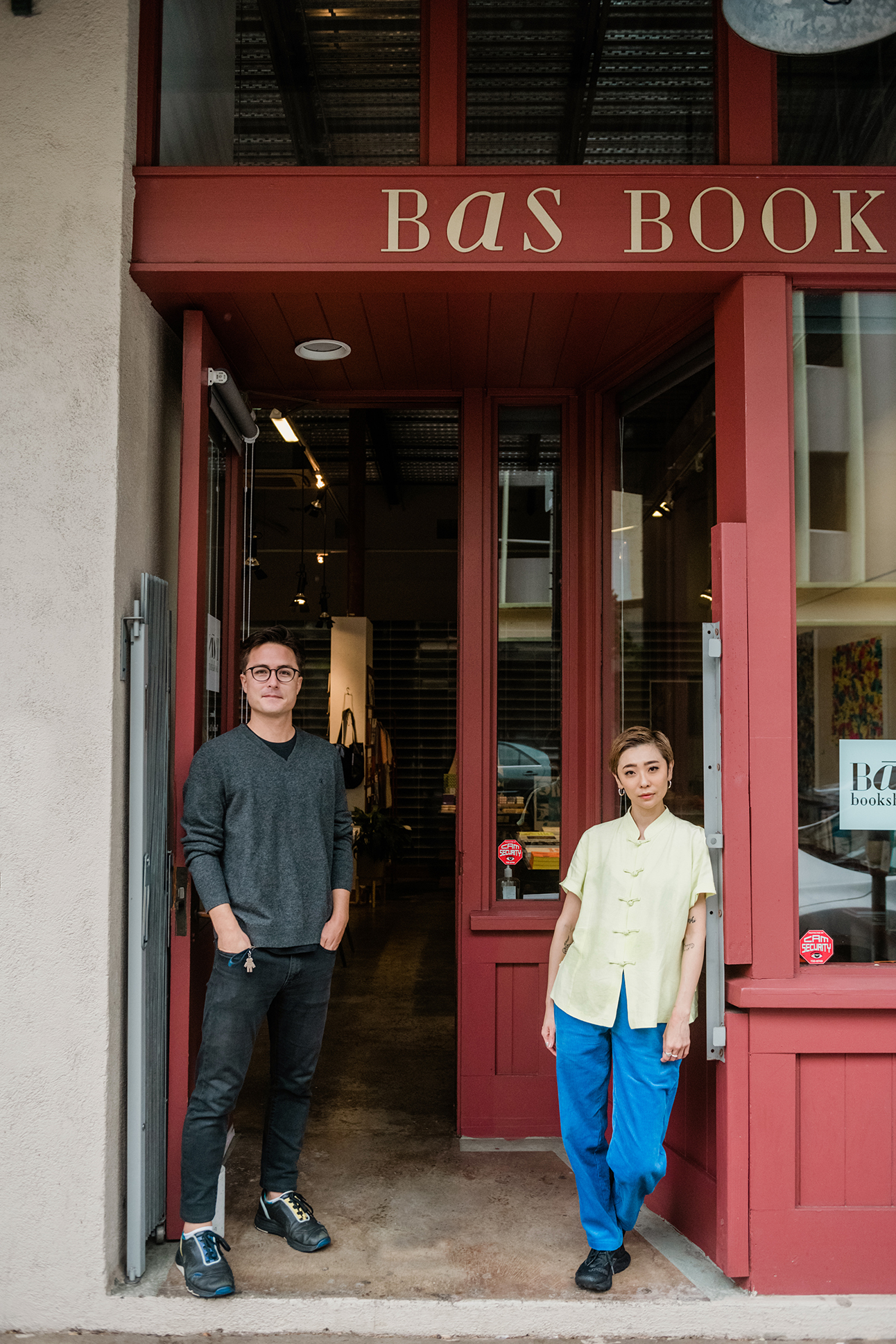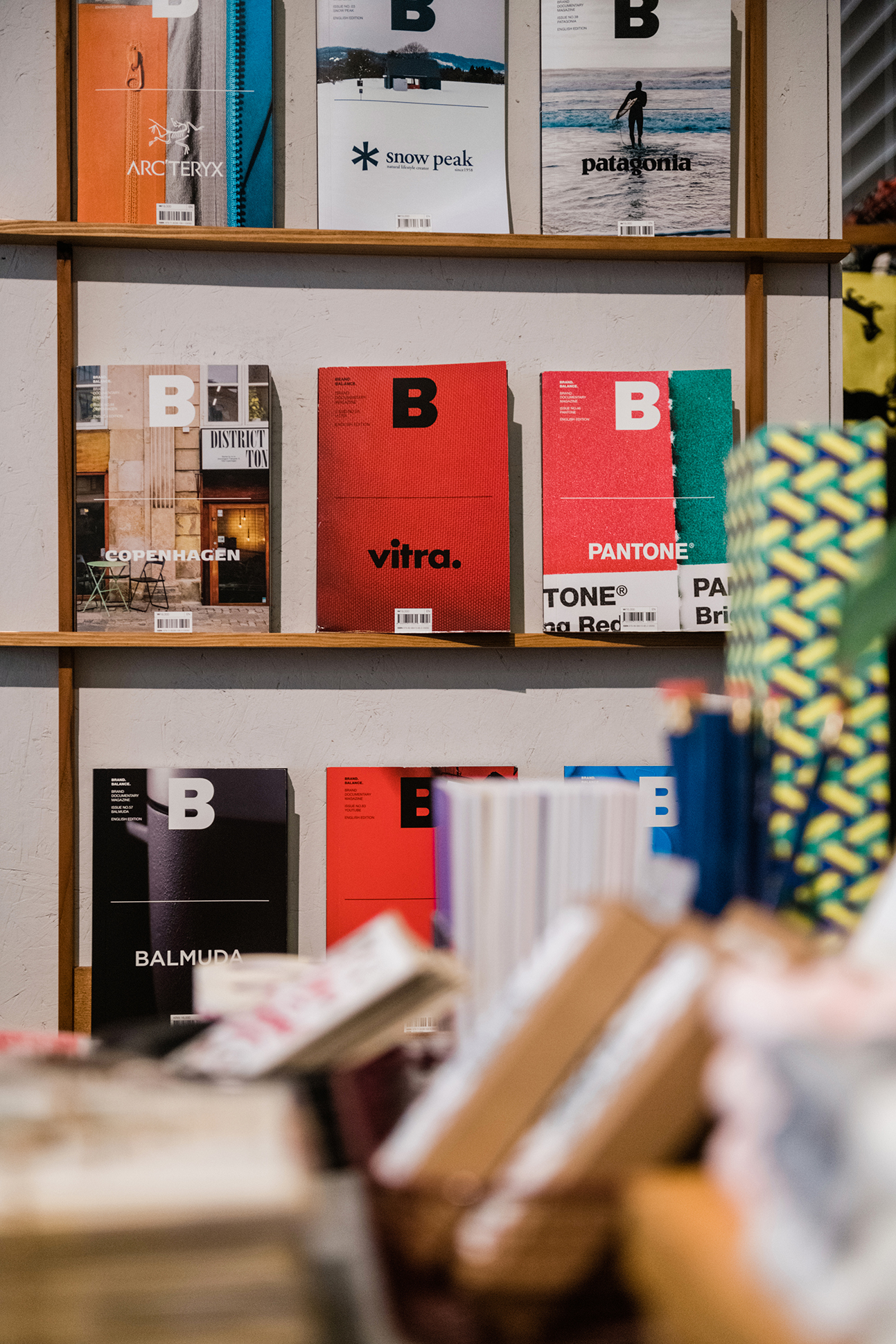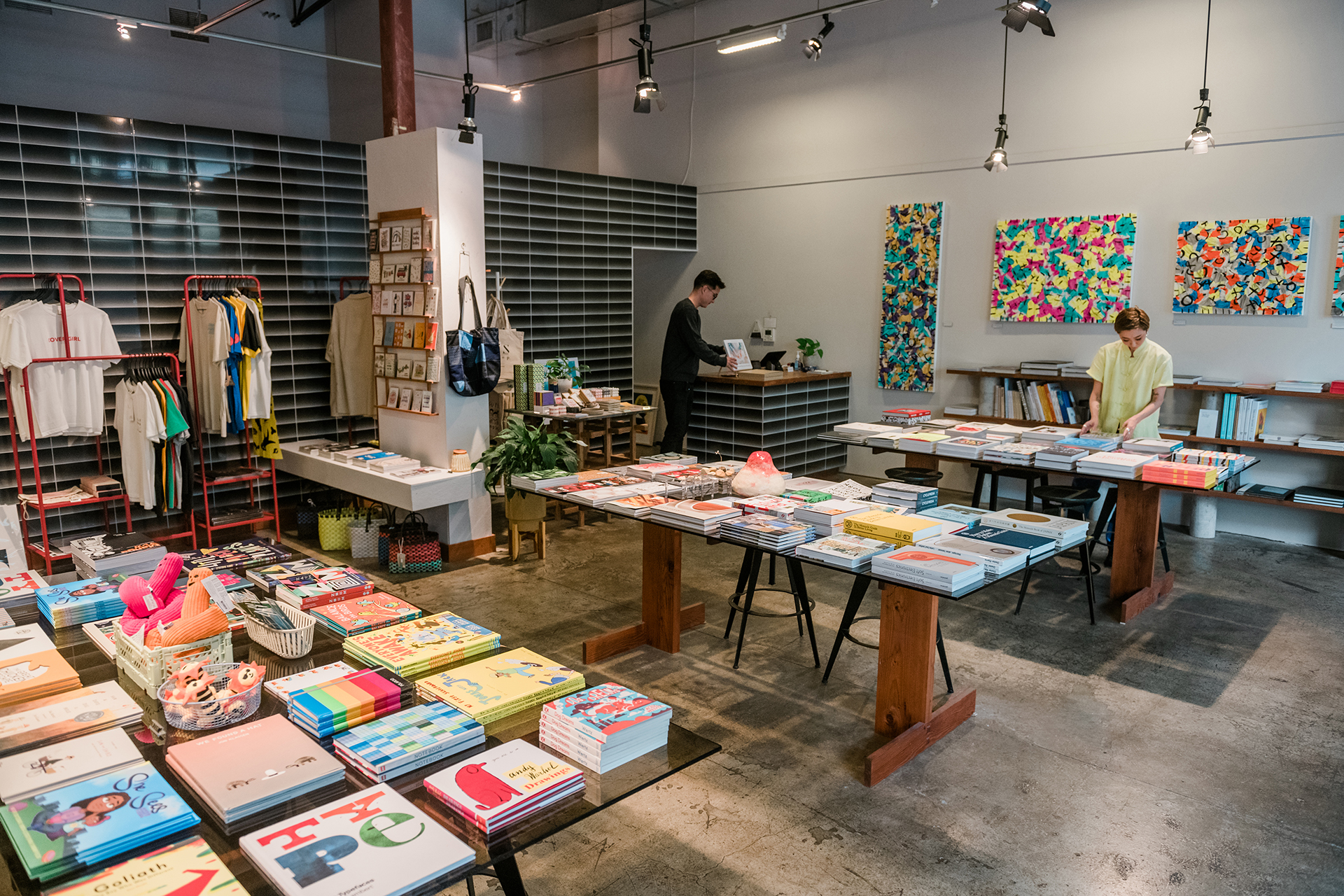At Bās Bookshop, two purveyors of the local arts scene take a chance on a vanishing venture: a bookstore.
Images by John Hook
If the sparse volume of bookstores indicates these days, then there are countless other things people in Hawai‘i might prefer to spend their money on than books. O‘ahu has Barnes and Noble, Native Books, Da Shop, Bookends. “But other than that, there’s nowhere to get new books,” Travis Sasaki said on a recent winter morning inside of Bās Bookshop, the two-year-old store specializing in niche art and design titles that he started with Aly Ishikuni, who was beside him. “For a majority of the people, it’s like, ‘Do you want to go to a museum or do you want to go to the beach or go fishing?’ I think most people are going to do the latter,” he said.
A huge glass table spread out before them, covered with books on architecture, graphic design, fashion, food, lifestyle, typography, art, brands; for adults and for kids; from authors local and far-off. There are dozens of copies of Magazine B, a Korean publication that laser-focuses on a singular brand (say, Patagonia, or ice cream, in its offshoot Magazine F, for food), adjacent to the graphic novels of Maui-born artist R. Kikuo Johnson. Sasaki’s favorite is a book of architectural designs by Tomoyuki Sakakida; Ishikuni’s is a history of synth music.
The space’s vibe: hip, meticulous, each title face up in thin stacks, ready to be leafed through. A common subject of inquiry: Why not shelve them? “Each book is so special,” Ishikuni said. “It is an art form in itself so it should be appreciated in that way.” She went on, “A lot of our inspiration comes from Japan—”
“And we’re both Japanese,” Sasaki said.
Stochastic collages by local artist Caz Hardt are hung around the room. (“He’s heavily influenced by Dadaism,” Sasaki said. “He does a lot of the collaging in a blind manner.”) Clothing from local designers like CYC and Natasha Halesworth’s The Consistency Project adorned two corners. Recently, Bās has been hosting music nights and workshops on bookbinding, hand-lettering, and bonsai. “We thought maybe this is our way to regenerate and revitalize this corner, this neighborhood,” Ishikuni said of Nu‘uanu Avenue and Pauahi Street, the Chinatown cross streets where Bās is located. “To bring in new energy, bring hope, inspiration.”
We were, like, ‘What can we do here?’ Because this is our neighborhood.
Travis Sasaki

In 2020, the couple decided to open the store in the dead of Covid. Sasaki had been walking to his architecture firm in Chinatown every day when, one morning, he noticed the skate shop his friends owned was closed. “We were, like, ‘What can we do here?’” Sasaki said. “Because this is our neighborhood,” he said. (He recently designed EP Bar next door.) “The funny thing is, it was the middle of the pandemic, nobody wanted to touch anything. We’re opening this bookstore where we’re telling people to basically finger through all the books,” he said.
“We didn’t know how people would perceive it or if they would even be interested in entering a bookstore,” Ishikuni said. “But we took that chance because we thought it was just so needed. This is where we work and live and play. All my memories were built here.” The spirit of Honolulu’s arts district, she felt, could use some love.
With some friends, they built out the store, painted the walls, cemented in the ceramic tile wall at the back. They wanted to give the community an excuse to come together over art and events. New books arrive twice a month. “To keep it fresh,” Ishikuni said. They look for what interests them and “what we think is healthy for Honolulu,” Sasaki added. They plucked the Louvette font from CJ Dunn, a type designer from Hawai‘i for their logo. “It just had this already naturally scholarly look which I thought fit with the bookshop,” Sasaki explained.
Sasaki grew up in Kona and turned into a competitive surfer, but the scene didn’t suit him. Against a high school teacher’s advice, he studied art in college, at the University of Hawai‘i at Mānoa. He hopes that by making books on art and design accessible, he might inspire the next generation of groms who crave an alternate, artistic career path.

Ishikuni was born and raised on Kaua‘i. In high school, her alternative tastes in fashion and music tempted her to look beyond her small-town upbringing. She later spent nine years in Japan, singing J-pop and R&B, then studied marketing at UH Mānoa, with a minor in fashion merchandising. Eventually, she took a break to pursue music with her indie-rock band, Alt/Air.
She met Sasaki through Art and Flea, an urban market featuring local work she co-founded in 2010. Today, she runs the programming for the Hawai‘i State Art Museum and Mori, a curated brick-and-mortar of local makers. “We never really had the long term intention of starting a bookstore,” Ishikuni said. “We don’t like free time,” Sasaki said, laughing.
But they both agreed that Honolulu lacked something fundamental, a base, one might say. The name, then, Bās, rewards the dictionary-obsessed. Sasaki and Ishikuni used the phonetic stylization, “bās,” which officially sounds like “base, like foundation,” Sasaki explained. “We feel like books are really foundational to culture.”
“A lot of people have a hard time pronouncing it,” Ishikuni said. “They all say ‘boss’ or ‘bass.’”
“It’s okay, we don’t get mad,” Sasaki said.

